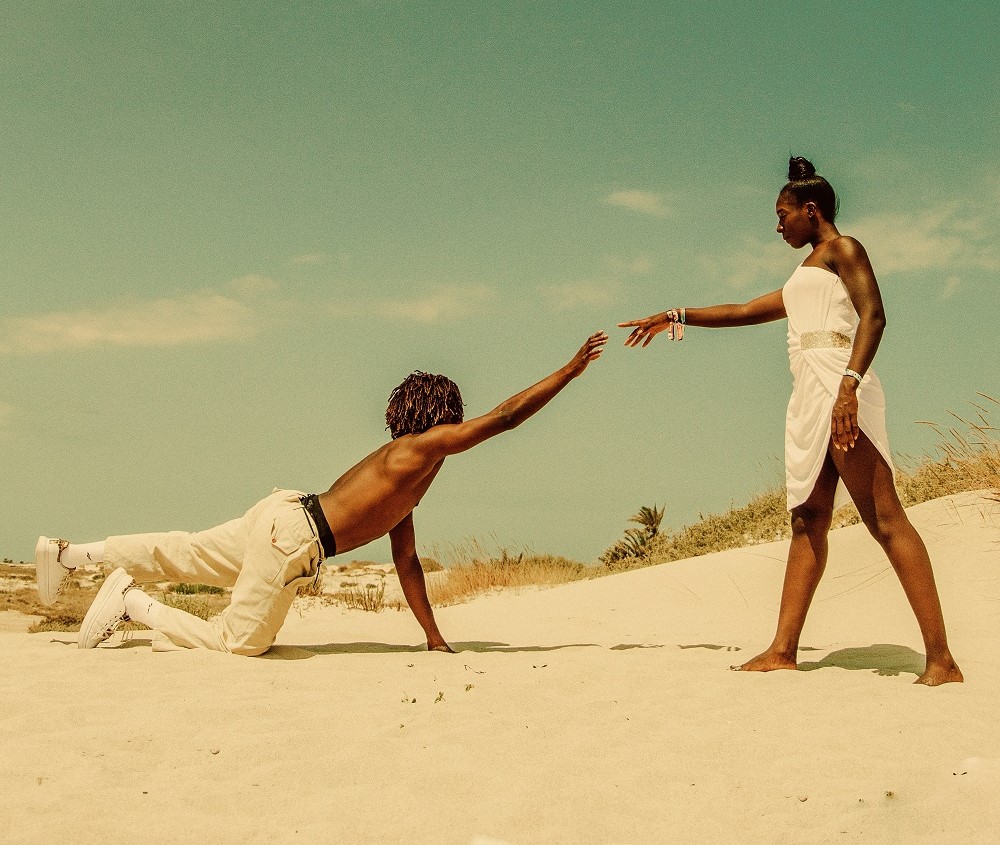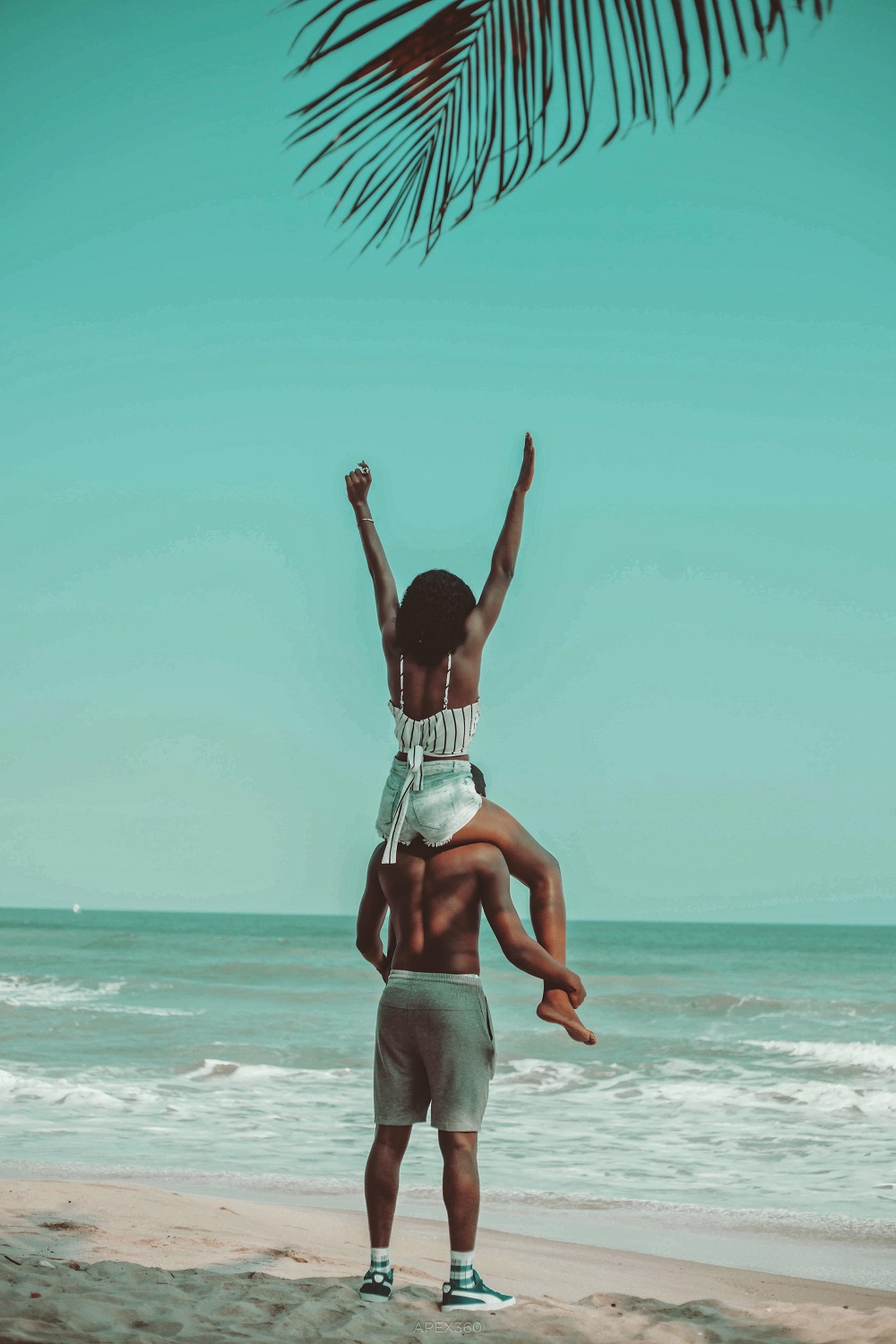By Veracia Ankrah
Posted on August 6, 2021
This article contains descriptions of racism and colourism.

Reality dating shows are successful because they tug on the heartstrings of hopeless romantics and play on society’s obsession with heteronomative love. We’ve all been conditioned, one way or another, to work toward appealing to the masses in order to attain status and social currency. However, Black women are rarely, if ever, considered beautiful or desirable according to society. Reality shows reinforce these ideals and U.K’s Love Island is no different. Yet every summer, I tune in almost every night and am reminded that the world does not deem Black women worthy when it comes to romance.
Love Island stars young people pursuing romantic relationships by spending 10 weeks in a gorgeous tropical villa. Each week, the men and women chose a castmate with whom they will couple, betray, re-couple, complete steamy challenges and go on dates with. The hope is that a couple can convince viewers that they have a genuine connection in order to win £50 000, and possibly also find the love of their life. Like most reality shows, some ignorance is required to overlook the ills of society to enjoy the mayhem, some of which include insidious racist undertones.
Despite the outpour of black squares on social media to signify solidarity with Black people during the height of the George Floyd and Breonna Taylor protests last summer, not much has changed about the casting of contestants in the Love Island series. No surprise here. Most seasons begin the same way. White contestants continue to choose one another, as if Black women are invisible or off-limits as potential partners. Black women step forward to be coupled with Black men, which seems like their only hope at being chosen in the house, and Black men have all sorts of women step forward for them, in hopes of fulfilling their “tall, dark and handsome” preferences that are usually reserved for white men with tans.
The Love Island villa is a microcosm of the real world. Black women’s experiences on the show are subject to eurocentric standards. No matter how beautiful Black women are when they enter the villa, it seems they are rarely desired and are picked last amongst other women. If chosen, they are fetishized by the white male majority but not considered a woman they want to enter into “couples” with long term or for the duration of the show’s taping. As an attempt to not be voted off the island by fellow castmates or viewers, Black women contestants usually wind up settling as the “cool friend” to white men. The rest of their time in the villa is spent garnering attention and banter as the life-of-the-party or hoping another Black man walks through the doors and chooses them first. Although, there is an advantage to being liked on the show, the main premise is to find love, a feat that the majority of the white cast accomplish time and time again, but not the Black women.
This season, there were two Black contestants in the starting group: 26-year-old Kas Kamwi, a fashion blogger from Essex, and 24-year-old model and luxury events host Aaron Francis. Kamwi stepped forward to couple with Francis but he chose to pair with an Asian woman, Shannon Singh instead. Afterwards, Kamwi agreed to couple with the 22-year-old semi-pro soccer player, Toby Aromolara, the only other Black contestant there. Toby only paired with Kamwi after his first choice regretted him. After days with Kamwi, Aromolara indirectly shares that he likes his connection with Kamwi but isn’t necessarily attracted to her but reassures her that he wants to take things slow, to grow their connection before displaying any form of physical intimacy. Days later a new contestant and white woman Chloe Burrows, is introduced in the villa. Aromolara kisses her and tells Kamwi he plans on pursuing her going forward, leaving Kamwi to question her worth and discernment in measuring connections made in the house, because Kamwi said one thing while his actions showed the complete opposite.
Last season, the only two Black contestants were paired in the first episode. Michael Boateng chose Leanne Amaning and again in the re-coupling. Once that connection didn’t work out, Boateng chose to pair with the next Black woman to enter the villa, Priscilla Anyabu. Although, they managed to make it out of the house and keep their relationship going strong, this year, Boetang mentioned that he felt trapped in his relationship to represent #BlackLove. Past Love Island castmates gain global notoriety and can leverage their newfound fame into building a name and careers for themselves. So Anyabu choosing to not make public statements about her and Boateng’s split is likely a conscious decision. Even if their public relationship was a point of contention, she kept her personal business to herself, a protective measure Black women take when their livelihood and decisions are heavily scrutinized in society, especially as it has to do with their dating and relationship choices. Yet, Boetang making public statements about the pressures he felt to uphold the presentation of a perfect Black couple also demonstrates an acknowledgment of the lack of demand for Black relationships in popular reality shows, as well as how the desirability of Black women are often overlooked.
Black woman contestant Yewande Biala, from the 2019 cast, spoke about the inadvertent racism she experienced while taping the show, but shared that she wasn’t at all surprised at the way she was received by her white peers. “Before I went into the villa, obviously I was aware of how hard it is when dating as a Black woman,” she told Cosmopolitan magazine. I personally struggled a lot because every man who came into the villa said their type was ‘blonde hair and blue eyes. I just sat there like, ‘obviously I missed the memo because I’m not blonde and I definitely won’t have blue eyes. It was a struggle and I cried so much.” As a Black woman, it’s likely you are aware of the ways you are viewed according to white, patriarchal standards and choosing to compete on a dating show is likely to take a toll on your confidence and self esteem. However, knowing what you are up against and choosing to compete anyway is an act of boldness.

By nature, Love Island is flawed, as are the dating trends in our society where Black women are undervalued and made to feel undesirable. To see these negative narratives perpetuated on screen, season after season, is a painful reminder to Black women that the validation sought after from an eurocentric standard focused world will most likely not become common in dominant society any time soon. Black women are set up to fail on these kinds of shows because these shows were not created with the intention of being safe havens for Black women; rather, it is a place where a token Black person is given a platform to prove their worth and dispel negative stereotypes in the name of satisfying a diversity checklist on screen. As viewers, we can only hope that authentic changes will be made soon which allows the beauty, worth, and diversity of Black women to become part of the norm explored on reality shows focused on finding love.

